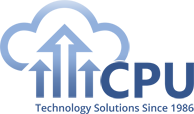In today’s increasingly competitive, incredibly fast-paced marketplace, healthy technology is more than just a necessary evil – it’s an absolute essential for your growth and success as a company. In fact, a recent survey found 31% of CEOs say information technology is one of their top business priorities. This means if you’re not prioritizing your information technology, you’re automatically falling behind a large chunk of the competition.
How Do I Know If My Technology is ‘Healthy?’
When IT professionals talk about the health of your information technology, we mean it in the most basic sense – healthy technology is reliable and works the way you need it to. When your technology is healthy, it’s supporting your short and long-term goals while enhancing all aspects of your operations. In the same way, healthy joints help your body stay mobile and move around, healthy technology keeps your business moving forward.
Do you know how healthy your technology is now that we’ve jumped into 2018? If you find yourself struggling with the following common issues, it’s time to make some changes:
- Inability to integrate as needed: Older systems or applications don’t always integrate well with the latest technologies, which becomes a challenge when you’re required to upgrade something specific to your infrastructure.
- Lack of proper data backup: Something as simple as a power outage or accidental file deletion can put a huge damper on your productivity, or worse, result in legal liabilities. A proper data backup solution is necessary for all businesses to eliminate costly downtime.
- Systems that aren’t secure against threats: If you’ve ever experienced threats like ransomware, malware, or even a simple virus, your systems need to be secured properly to protect against sophisticated hackers.
- Frustrated employees more often than not: When your staff members seem to be frustrated with technology more often than not, it’s likely because they’re using slow, outdated systems that don’t work as well as they should.
- Lack of accessibility outside of the office: It’s a commonly known fact that work doesn’t end once you’ve left the office. You need to ensure your staff is able to access data and applications from any device or location.
One of the simplest, most efficient ways to solve the common issues listed above is moving your infrastructure to the cloud. Essentially, the cloud lets you store and access important data and applications over the Internet instead of on your computer’s hard drive. This helps you achieve greater speed, agility, and cost-efficiency due to the following:
- A significantly reduced energy bill: Buying less hardware and using servers that aren’t located on-premises will significantly reduce your carbon footprint, and as a result, your energy bill each month.
- The ability to scale up or down as needed: As your company grows, your cloud infrastructure can grow with you. You only pay for what you’re using and it’s simple to make changes as your needs change – allowing you to easily launch or remove services.
- An increase in collaborative working: Sharing documents in real-time, whether they’re in the same office or working from different time zones, lets employees communicate and collaborate easier than ever before.
- A higher level of security: A cloud provider has the ability to secure your data and applications with stringent firewalls, strong access credentials, and overall stricter security protocols than the average business would.
It’s clear that moving your infrastructure to the cloud is the best choice if you’re trying to ensure the health of your information technology, but what systems can be moved to the cloud?
- ERP Systems: Cloud-based ERP systems let you run your operations management, accounting, and reporting in the cloud for anytime, anywhere access. This means you’re able to make good business decisions no matter where you’re located.
- Phone Systems: VoIP (Voice over Internet Protocol) phone systems let you access enterprise-grade features for a low monthly cost. Plus, you’re able to keep your workforce in constant contact with each other and customers while they’re out of the office.
- Servers: Hosted servers let you maintain full control over your data while avoiding the constant hassle of upgrades associated with physical servers. As an added benefit, you’re able to quickly scale with virtual machines that have a virtually unlimited capacity.
- Email: Hosted email lets you rest assured knowing you’ll have always-on access to your important email communications, no matter where you’re located or what device you’re using. Plus, you know your emails are more secure than ever before.
- And much, much more: Aside from ERP systems, phone systems, servers, and email, you’re able to move your desktops, file sharing services, document management services, backup solutions, and more to the cloud. The options are limitless!
Your staff is incredibly mobile and it’s vital for you to provide them with the resources they need, regardless of their physical location.
Who is CPU, Inc.?
CPU, Inc. Started in 1986 as a software development company in Ohio and Michigan. Since then, we’ve moved our focus to the cloud because we know cloud services are the future of technology. We have the best and brightest technologists working to help our clients stay competitive and agile with the latest cloud solutions.
Call us at (419) 872-9119 or send us an email at info@CPUonline.com to get started. We can help you keep your IT healthy as a horse this year and for many years to come.
Published on 15th January 2018 by Jeanne DeWitt.

